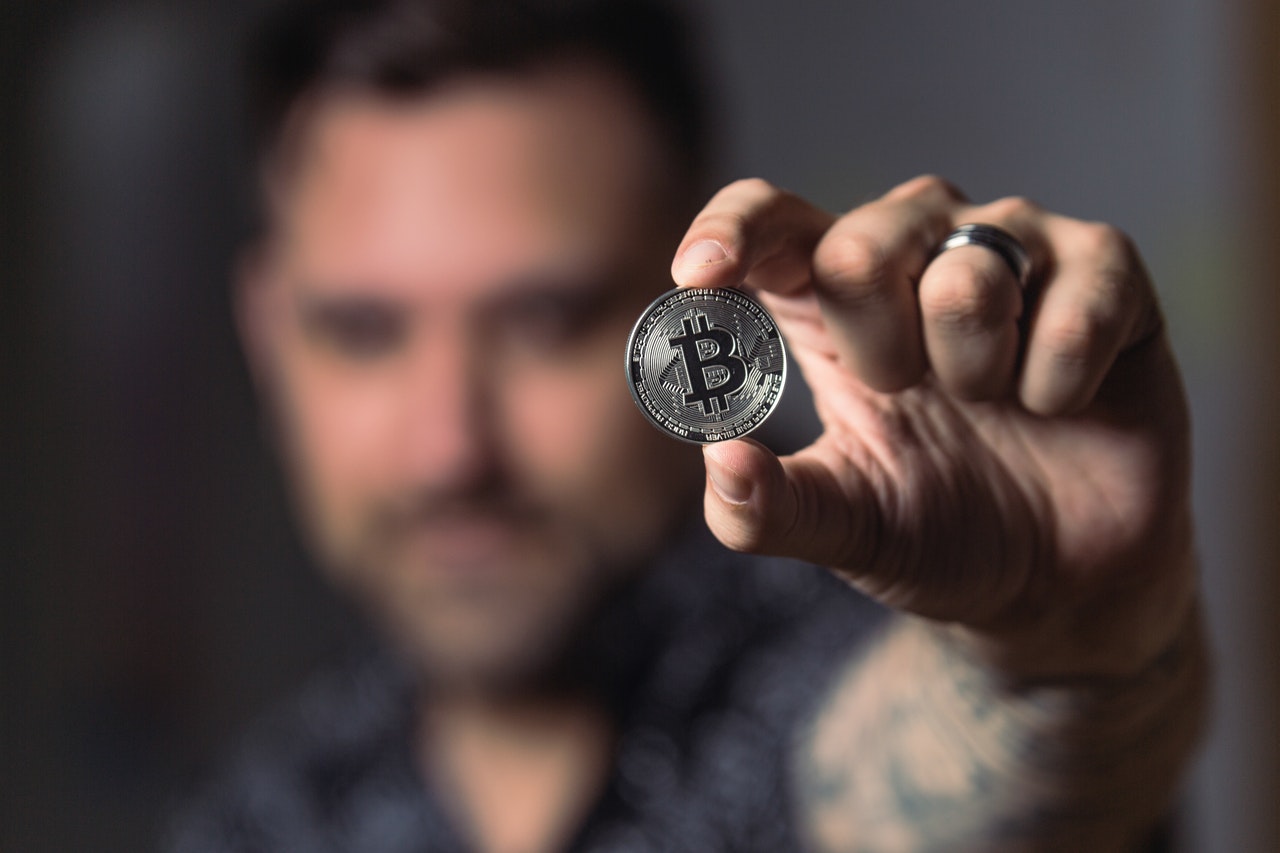Finance
Everything You Need To Know About Bitcoin But Feel Stupid To Ask
Bitcoin’s started to get talked about again. It’s the third time this has happened now and if you didn’t ask what it’s all about in 2013 or 2017, you probably feel stupid doing so now!
You shouldn’t feel stupid though. Bitcoin is a revolutionary and completely novel payments network and it’s not easy to understand. With that in mind, we thought we’d spell out a few commonly asked questions relating to the cryptocurrency. Here’s everything you need to know about Bitcoin but felt too stupid to ask!
What is Bitcoin?
Bitcoin is the world’s first viable decentralised, digital currency and payments network. By decentralised, we mean that no central authority controls Bitcoin. With every existing payment network, records of transactions rely on a single trusted entity to update users’ balances. Your bank, the Visa network, PayPal – they all require that their users trust them and such entities can, and do, abuse that trust. They also limit their users’ financial freedom, possessing the power to censor transactions and blacklist those involved in activities deemed suspicious.
In Bitcoin, a distributed network of computers plays the role of transaction validator. Each validator or node checks that every transaction follows the network’s rules and rejects those that don’t. If someone tries to verify invalid transactions (the sender didn’t have enough Bitcoin, for example), the rest of the network discards the transactions. All the nodes have a financial incentive to follow the rules agreed upon since Bitcoin’s launch and this creates an incredibly strong security model.
However, Bitcoin is more than just a payments network. It’s also a currency. The issuance of Bitcoin is free from central control too. With national currencies, a central bank decides how much money to create. The creation of new money also adds to inflationary pressure on the currency being printed. This devalues all currency in circulation and serves as an indirect form of taxation on those savvy enough to save.
Bitcoin was created with 21 million units and no central authority capable of generating new Bitcoin. This 21 million total is gradually released into circulation. The release of new Bitcoin follows a known schedule. A set number of the 21 million is awarded to whichever computer system added the most recent block of transactions to a shared ledger of transactions.
This is known as the block reward and it reduces about every four years. The block reward for the first four years was 50 Bitcoin. This halved in 2012 to 25 BTC, again in 2016 to 12.5 BTC, and most recently in May 2020 to 6.25 BTC. The issuance will halve again in 2024. These so-called Bitcoin halvings make the digital currency increasingly scarce.
Why are Bitcoin Prices so Volatile?
Bitcoin price is a function of supply and demand. The supply side of the equation is people selling Bitcoin and the demand is people buying it. When the demand pressure is greater than the supply pressure, the price increases. When the opposite is true, the price drops.
With Bitcoin being such a revolutionary new financial technology, there is a lot of uncertainty surrounding it. People are sceptical about things they don’t fully understand and lawmakers of the world could perceive it as a threat to the global economic status quo.
Relative to other asset classes, the Bitcoin market is still tiny. When people sell because some perceived bad news about Bitcoin makes them question the asset’s future, the price drops and because this selling is occurring in a relatively small market, it has a more dramatic impact on the price than it would in a larger market.
The same is true for buying pressure too. If sudden good news is announced for Bitcoin, a sudden increase in buying pressure will make the price move dramatically to the upside. To understand this concept, think about the gold market. All the gold in the world is currently worth around $8 trillion dollars. For gold to double in market price, it would require investors to spend another $8 trillion dollars on the same amount of gold. Bitcoin’s market is a fraction of the size of gold’s so requires a much lower influx of cash to achieve that same doubling.
One thing to note is that Bitcoin’s selling pressure is slowing down thanks to the halving schedule detailed above. When Bitcoin first went live, 50 BTC were added to the circulating supply every 10 minutes. Today, that number is just 6.25 BTC. Miners are consistently the largest seller of Bitcoin (they need to pay for electricity and hardware to continue mining), but their supply is getting smaller every four years. This, for many industry observers, is a good reason to hold some Bitcoin, since increases in supply pressure over time can only make every Bitcoin in existence more valuable in the future.
Can’t Someone Break the Rules and Double Spend or Create More Bitcoin?
Spending Bitcoin that a user doesn’t have or changing the total supply of Bitcoin requires more than half of the network validators to agree with that version of history. Acquiring the level of computing power to do so would be phenomenally expensive. It would also be quickly spotted and would invalidate the entire value proposition of Bitcoin.
People trust Bitcoin precisely because of its known total supply and incredibly robust security model. If the security was successfully breached (it never has been) or an entity emerged with enough computing power to subvert the network rules, there would be immediate selling pressure that would probably take the Bitcoin price to near zero. This would mean that the attacker would not profit and would have spent heavily on both electricity and hardware for no gain.
The measure of Bitcoin’s combined computing power is called its hash rate. This refers to the number of guesses the network can make at a computing problem every second. Each mining units is trying to guess a string of characters to add their block of transactions to the ledger of transactions next and pick up the block reward. This is known as proof-of-work and it’s central to Bitcoin’s security because it takes so much expensive computational power to guess the correct answer to the problem.
Bitcoin’s hash rate is constantly growing as the currency’s future becomes less doubtful. Huge companies are operating massive mining farms all around the world and with them, the cost to successfully attack the network is ever increasing.
Given that Bitcoin is priced high, if some entity was to command enough hash rate to attack the network, it would make more sense to play by the rules. Using the computers to earn more Bitcoin than other miners by virtue of their massive share of the network’s mining power would surely be a better idea. Crashing the price after acquiring hundreds of thousands of dollars’ worth of equipment and spending heavily on electricity would waste a huge amount of money.
Who Created Bitcoin?
Bitcoin was created in 2009 by an anonymous developer of group of developers calling themselves Satoshi Nakamoto. Nakamoto first published a whitepaper in 2008 to a niche cryptography mailing list and then went on to launch the network in January 2009.
Since then, interest in Bitcoin as an alternate payment network has exploded. From an experimental currency with no dollar value, the network is today worth more than $160 billion.
This rise has been mostly due to people’s perception of Bitcoin as a kind of digital gold. In fact, many analysts reason that Bitcoin represents an improvement on the yellow metal. It’s scarcer (who knows how much gold is in the universe?), it’s more divisible (to eight decimal places), and it’s easier (and cheaper) to both transport and store. The only thing it lacks is historical use as a safe haven asset. However, each clear Bitcoin exists without a security compromise, it gets closer to achieving this.
Where Should I Keep My Bitcoin?
Storage of Bitcoin is the individual users’ responsibility. There are various different storage methods available with trade-offs between security and convenience. This article isn’t really long enough for a deep dive into the different storage methods out there but we’ve included some pointers below to help understand a few crucial issues:
- Whoever has the private key to a wallet has ultimate control of the Bitcoin in it. If you buy from a service that never reveals the private key, they control your Bitcoin and must give you permission to use it.
- If you’re using a software wallet (Exodus, Electrum, etc.) make sure that it’s open source. You want the community to be able to check the code of the wallet.
- Hardware wallets offer a great balance of security and convenience. They’re not free but units like Trezors and Ledgers are very useful – particularly for larger Bitcoin holdings.
- Paper wallets are the most secure form of Bitcoin storage but they must be set up correctly. Even well-known Bitcoin experts doubt their ability to be able to perform the tasks required to create a completely bulletproof paper wallet. We, therefore, don’t recommend thinking about using a paper wallet. You certainly should never buy a paper wallet either (remember, if someone knows your private key, they can empty your wallet).
- Never use the storage at an exchange for long-term storage. Besides forcing you to ask for permission to send your Bitcoin, exchanges can fall victim to hacks and being unregulated, it’s pot luck if they bother to pay their customers back after a security breach.
Where Can I Get Some Bitcoin?
Although some people are paid in Bitcoin for their jobs and Bitcoin miners support the network in exchange for BTC, most people buy it. There are a few different popular and safe ways to buy Bitcoin.
Brokerage
Services like Coinbase offer a brokerage. You can buy Bitcoin directly from them using a variety of payment methods. They’re very convenient but usually demand large fees.
Exchange
Some cryptocurrency exchange platforms, like Bitstamp or CEX.io, allows users to send national currency to an account and buy Bitcoin on the exchange itself. This allows users to set the price they want to buy at and a variety of other trading features are also available. The fees are often lower at exchanges than they are at brokerages but minimum deposit amounts or bank transfer fees can make this option unappealing to newcomers.
Peer-to-Peer Exchanges
Platforms like LocalBitcoins and Paxful unite individuals wanting to sell Bitcoin with buyers. Rather than use a centralised exchange, the trade is peer-to-peer, using only an escrow function provided by the marketplace. This protects both buyer and seller from scam trades.
Bitcoin sellers at peer-to-peer marketplaces will accept a much wider variety of payment methods than exchanges or brokerages do. The seller themselves decides how they want to receive payment. This might be via PayPal, cash deposit in a bank, or even Amazon gift card.
Fintech and eWallet Companies
Many modern financial start-ups, such as Revolut, PayPal, and Neteller, have or are in the process of starting to offer Bitcoin buying. Whilst this is certainly good for Bitcoin exposure, these services usually rely on custodial wallets (the company holds the private keys) and do not support withdrawals.
Whilst people use them for short term buying and selling (to realise a profit hopefully), they’re not really suitable for anything else. Those wanting to invest in Bitcoin long-term should take responsibility for their own storage, buy from an exchange, marketplace, or brokerage, and invest in a hardware wallet. Meanwhile, those wanting to spend Bitcoin at retailers, online casinos, or for whatever else really, should have at least a desktop or mobile wallet with a securely backed-up private key.
Is Bitcoin Anonymous?
In its early days, many people wrongly said Bitcoin is an anonymous payments network. This, however, is not true. It’s much more accurate to say that Bitcoin is pseudonymous – it’s anonymous on its surface but dig deeper and you can trace transactions to individuals. If your idea is to shop online or play at an online casino, privacy is something that you may need to way up against others factors.
Transaction tracking is made possible because every single Bitcoin transaction is recorded on a shared, public ledger of transactions known as the blockchain. Thanks to centralised on ramps like exchanges and brokerages, along with other clues from identifiers the Bitcoin user inevitably leaves around the internet, specialist companies such as Chainalysis can often name who made a transaction.
It’s true that Bitcoin wallets do not have any individual’s identity attached though. This means it’s a great currency and payments network for those that might want to keep their spending secret but not necessarily from the government. For example, if your significant other has a problem with your gambling habits, you could use a Bitcoin casino and keeping your bankroll away from your bank account.
Where Can I Use Bitcoin?
Bitcoin acceptance is growing rapidly around the world. Whereas a few years ago, options were severely limited, today there are almost 20,000 retailers globally will take payment for their products or services in Bitcoin. These include bars, shops, estate agents, restaurants, casinos, auto dealers, and even strip clubs!
There are also lots of services that sell gift vouchers for Bitcoin. This gives the Bitcoin user plenty of options when it comes to spending their cryptocurrency. Just knowing that you can trade Bitcoin for an Amazon gift card should make you realise that you can buy almost anything in exchange for Bitcoin.
What are the Advantages of Using Bitcoin?
As you can see, Bitcoin really is like no other currency before it. Its lack of central authority creates some interesting qualities that make it completely unique today. Given the way it was created and the spotlight on all more recent cryptocurrencies, it seems fair to say that there will never be another Bitcoin.
Here are some of the things that makes Bitcoin so special:
- Hard cap of 21 million makes it very scarce. Increases in demand can only make the price of Bitcoin increase.
- No one can block a Bitcoin transaction. It’s the only payments network that is impossible for a third party to censor.
- Bitcoin transactions settle with absolute finality in less than an hour usually. Global bank transactions can often take more than a week!
- Bitcoin allows cheap global transfers. Services like Western Union charge a lot to send money around the world. Bitcoin can cost just cents – even to send hundreds of millions of dollars.
- Bitcoin has a security model that hasn’t failed once in more than eleven years. The network has enjoyed more than 99% uptime during its existence.
Conclusion: Is Bitcoin the Future?
Today, Bitcoin is considered a speculative investment firstly, and a niche payments method secondly. However, its deeming as speculative is increasingly suspect. There isn’t very much that’s unknown about Bitcoin. The supply is known, the issuance rate is known, and every transaction ever made is visible for as long as the network exists.
At this point, barring any unknown flaws in the code or similar black swan event, Bitcoin’s success seems dependent only on whether or not people see the need for a hard form of money that’s impossible to inflate. Given the sheer volume of money printing that goes on in the world today and interest rising in gold again, it seems a given that the global appetite for such a sound money will only increase. If it does, today’s Bitcoin prices will likely seem miniscule compared with what they may become in the future.





















Recent Comments